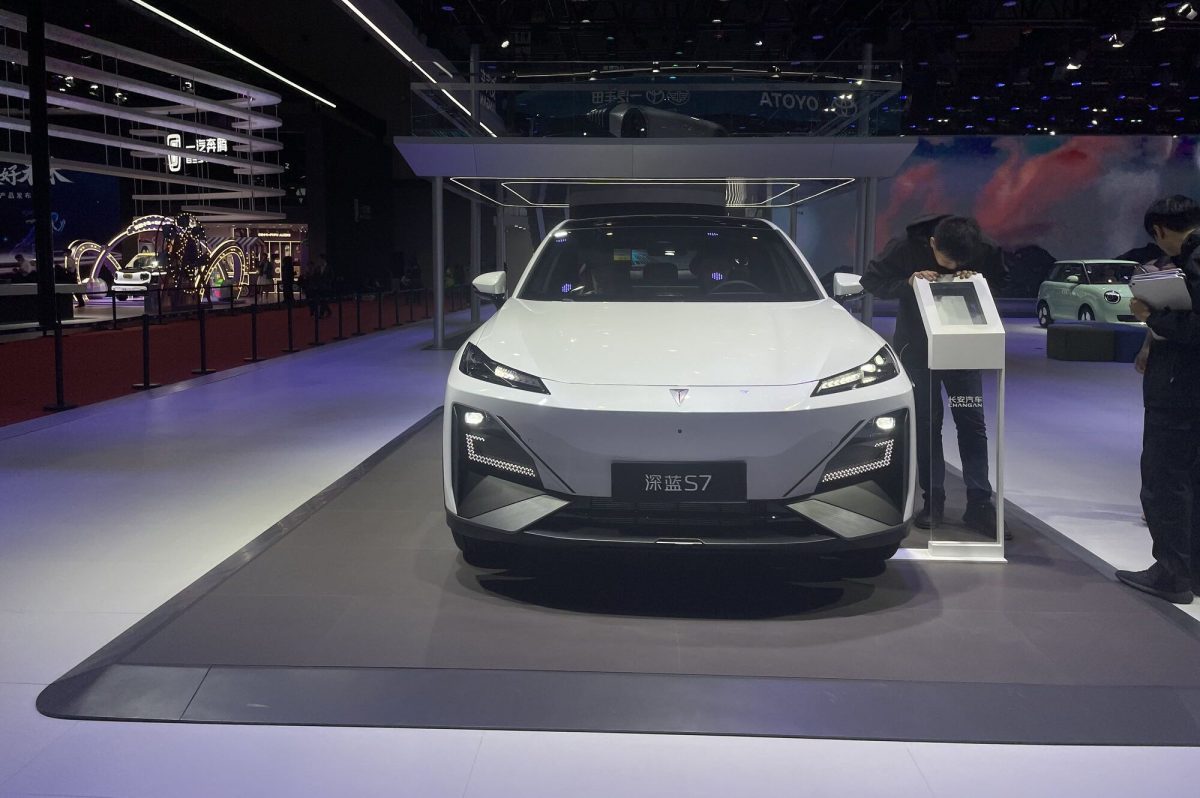Huawei is spinning off its automotive business unit, enabling Changan Automobile and other manufacturing partners to invest, in a move aimed at turning the loss-making car division into a profitable operation amid fierce competition.
Why it matters: The reorganization is a rare move for Huawei – a company under 100% ownership of founder Ren Zhengfei and its staff since 2003, according to its official website – as the Chinese telecommunication giant puts a date of 2025 on its target of profitability for its as-yet loss-making auto business.
- Deemed by Citic Securities analysts as “a milestone” for the Chinese auto industry, the move is expected to help Huawei court new industry allies and gain investment to pursue intelligent vehicle technology. Established automakers such as SAIC have reportedly voiced concern about Huawei’s move into electric cars.
- The equity structure of the new entity may be comparable to that of the United Automotive Electronic Systems, a joint venture formed by German auto supplier Bosch and several Chinese carmakers including SAIC, FAW, and Dongfeng in 1995. This would allow more automakers to benefit from collaboration, and not just Changan, analysts wrote in a Nov. 26 note.
Details: The new joint venture will focus on areas already covered by Huawei’s Intelligent Automotive Solution (IAS) business unit, including the development of intelligent driving software, digital cockpit systems, and digital platforms, among others, according to a regulatory filing published by Shenzhen-listed Changan dated on Monday.
- Huawei will take at least a 60% stake in the new entity but will no longer directly compete against the new company in principle. Changan and its relevant parties will acquire no more than a 40% stake in the JV. The two companies plan to discuss the details of the transaction and sign an agreement within six months, the filing said.
- The establishment of the new entity will have no impact on the ongoing collaboration between Huawei and Chinese car manufacturer Seres, according to a Nov. 26 statement. Seres, which makes Aito-branded EVs for Huawei, added it has been asked to participate in the investment and is in discussions to jointly develop intelligent electric vehicle architecture.
- The entity will prioritize diversified ownership, said the filing. It is anticipated that various parties will engage deeply in the development of the open vehicle platform, said Richard Yu, CEO of Huawei’s consumer business group and chairman of the IAS BU, who compared the platform to “a train engine.”
Context: Huawei, state-owned Changan and Chinese battery maker CATL announced a partnership to establish EV brand Avatr back in late 2020. The companies have sold roughly 20,000 units of the Avatr 11 battery electric crossover since delivery began last December, launching their second premium model with a starting price of RMB 300,800 ($41,240) earlier this month.
- Huawei has also been selling EVs since mid-2021 with lesser-known Seres, formerly the Chongqing Sokon Industrial Group, followed by the launch of the first Aito-branded EV last September. Huawei said in early October that it had secured more than 50,000 non-refundable orders for the redesigned version of the M7, Aito’s second model, less than a month after its launch. That number was updated to more than 100,000 as of Monday.
- The Chinese tech giant is also partnering with domestic manufacturers Chery, BAIC, and JAC, showcasing the first model under the new Luxeed marque jointly set up with Jaguar Land Rover’s manufacturing partner Chery on Nov. 9. The Luxeed S7 sedan will be officially launched on Tuesday and the respective new models co-built with BAIC and JAC are set to hit the market in 2024.
- Huawei reportedly invested $1 billion in its automotive business in 2021 and has since maintained its push into the Chinese intelligent EV market in an effort to diversify its revenue sources and offset the impact on its core businesses from US trade restrictions. The IAS BU recorded revenue of RMB 1 billion during the first half of this year, accounting for around 0.3% of its total revenue.
READ MORE: Xpeng and Huawei-backed EV maker set new delivery records as demand grows for self-driving tech

